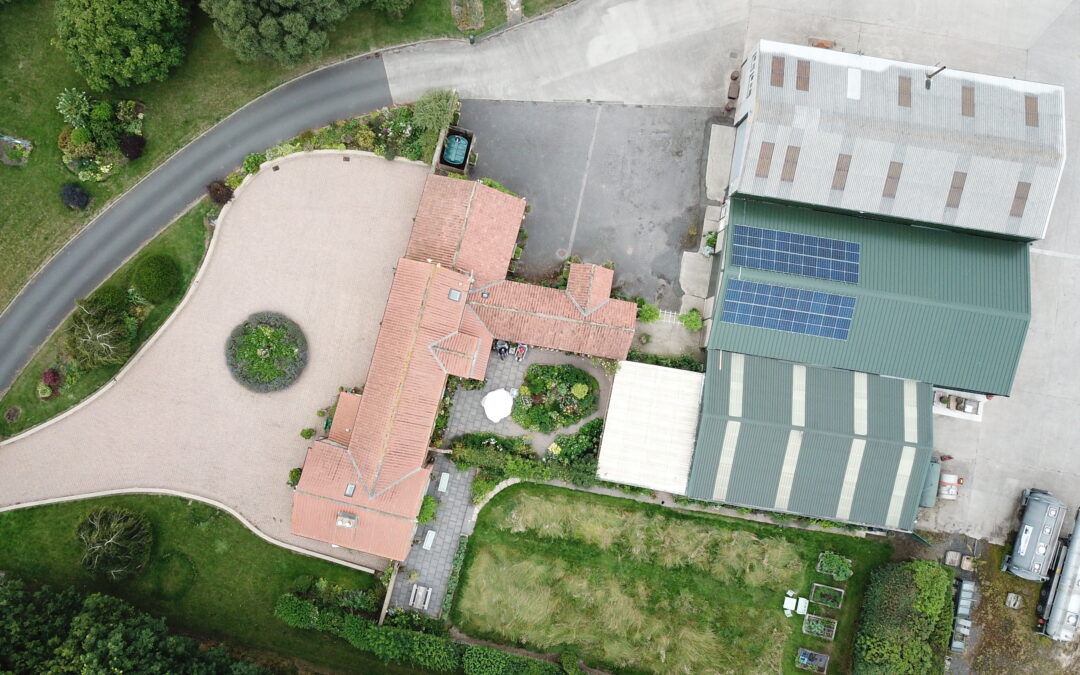In a world where environmental sustainability is more crucial than ever, businesses across the globe are stepping up to embrace greener practices. Hydroblast, a company renowned for its innovative water jetting solutions, has recently taken significant strides in this direction. With the installation of a biomass burner and solar panels, the company not only amplifies its commitment to going green but also aligns perfectly with the principles of its ISO 14001 certification. This move marks a significant milestone in Hydroblast’s journey towards reducing its carbon footprint and promoting environmental sustainability.
ISO 14001 and Hydroblast’s Environmental Vision
ISO 14001 is a globally recognised standard for environmental management systems (EMS), designed to help organisations minimise their environmental impact, comply with applicable laws, and continually improve their environmental performance. For Hydroblast, obtaining the ISO 14001 certificate was not just about meeting the set criteria; it was a declaration of the company’s long-term commitment to environmental stewardship.
This certification lays the foundation for Hydroblast’s strategic approach to integrating environmental considerations into all aspects of its operations. From reducing waste and conserving resources to minimising hazardous emissions, the company is dedicated to implementing practices that contribute positively to environmental sustainability.

Investing in Renewable Energy: Biomass Burner and Solar Panels
Hydroblast’s investment in a biomass burner and solar panels is a testament to its proactive approach towards adopting renewable energy sources. The biomass burner represents a sustainable solution to heating needs, utilising organic materials as fuel. This not only helps in reducing reliance on fossil fuels but also in cutting down greenhouse gas emissions associated with traditional heating methods.
Similarly, the installation of solar panels enables Hydroblast to harness the power of the sun, a clean and inexhaustible source of energy. This move not only reduces the company’s electricity bills but also significantly lowers its carbon footprint. By generating renewable energy on-site, Hydroblast is taking a giant leap towards self-sufficiency and sustainability.
The Path Ahead: Sustainable Practices and Green Innovation
Hydroblast’s journey towards sustainability does not end with the ISO 14001 certification or the installation of renewable energy systems. These initiatives are part of a broader, ongoing effort to embed environmental consciousness into the core of the company’s operations. Hydroblast is committed to exploring and implementing innovative green technologies and practices that can further reduce its environmental impact.
Moreover, the company recognises the importance of raising awareness and fostering a culture of sustainability among its employees and stakeholders. Through education and engagement, Hydroblast aims to inspire others to adopt eco-friendly practices and contribute to a more sustainable future.
Conclusion
Hydroblast’s commitment to environmental sustainability is a shining example for businesses worldwide. By obtaining the ISO 14001 certification and investing in renewable energy sources like a biomass burner and solar panels, the company not only reduces its environmental impact but also sets a benchmark for others in the industry. As Hydroblast continues to embrace green innovations and sustainable practices, it paves the way for a cleaner, greener planet for future generations.


